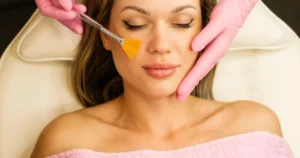

Happy September! Welcome to our first blog post! Let’s talk about aesthetics while pregnant. As many of you know, I (Kelli) am expecting my second baby boy in December. So, lets chat about what is consider safe and unsafe during pregnancy.
Pregnancy is a remarkable journey marked by numerous changes, not just in your body but also in your skincare routine. Many expectant mothers wonder how to maintain their beauty regimen safely while ensuring the health of their developing baby. This blog post will explore what can and cannot be done regarding medical-grade skincare and injectables during pregnancy, highlight pregnancy-safe skincare options, and suggest wellness features that can enhance overall well-being during this special time.
When it comes to skincare and injectables, the general consensus is that caution is key. The skin absorbs various substances, and while some ingredients are perfectly safe, others could pose risks during pregnancy. Here’s a quick overview of what to avoid:
Fortunately, there are plenty of safe alternatives to keep your skin glowing throughout pregnancy. Here are some pregnancy-safe skincare ingredients to consider:
Beyond skincare, there are several wellness practices that expectant mothers can incorporate into their daily routine to promote overall health and well-being:
While pregnancy may necessitate some adjustments to your skincare and wellness routines, there are still plenty of safe and effective options available. By steering clear of certain injectables and ingredients, and embracing a holistic approach to wellness, you can navigate this exciting journey with confidence. Always consult with your healthcare provider for personalized advice tailored to your specific situation. Remember, taking care of yourself is just as important as taking care of your little one!